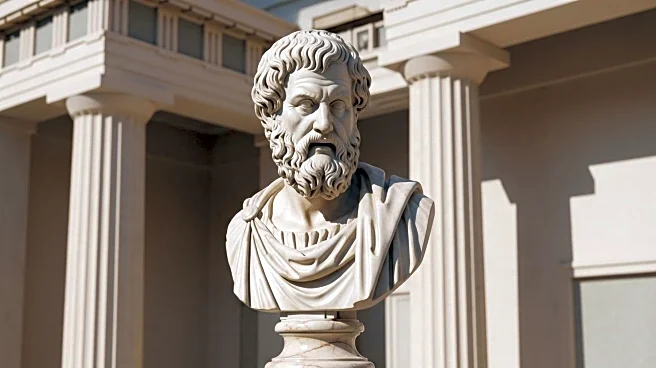Aristotle, born in Stagira, Macedonia in 384 BC, remains one of the most influential philosophers in Western civilization. His contributions to various fields such as logic, biology, and ethics have laid the foundation for modern science and philosophy. Aristotle's tutelage of Alexander the Great and his establishment of the Lyceum are pivotal moments in his legacy, showcasing his impact on both education and leadership.
Scope of Legacy
Aristotle's legacy spans across multiple disciplines, including philosophy, science, and education. His works, which cover subjects from natural sciences to politics, have influenced countless scholars and thinkers throughout history. The Aristotelian tradition, which he initiated, continues to be a cornerstone in philosophical studies, demonstrating the breadth of his intellectual contributions.
Pivotal Contributions
Among Aristotle's most significant contributions is the establishment of formal logic, which has been a fundamental aspect of philosophical inquiry. His pioneering work in zoology and the development of the scientific method have also been crucial in advancing scientific knowledge. These contributions have not only shaped the fields themselves but have also influenced the way knowledge is pursued and understood.
Enduring Influence
Aristotle's influence extends beyond his immediate contributions, affecting medieval scholars and modern thinkers alike. Revered as "The First Teacher" by medieval Muslim scholars and simply "The Philosopher" by Christians like Thomas Aquinas, his works have been studied and debated for centuries. His ethical theories and logical frameworks continue to be relevant in contemporary discussions.
U.S. Relevance
In the United States, Aristotle's teachings are integral to the study of philosophy and science. His logical methods and ethical principles are taught in universities across the country, influencing both academic and practical approaches to various fields. The enduring relevance of his work in American education underscores his lasting impact on Western thought.

 Discover Daily
Discover Daily 








